
The World Council of Churches (WCC) is an international organization consisting of various Christian churches and church associations from around the world. The organization’s founding tenets are based on the members’ common acknowledgement of Jesus Christ’s life and teachings, and adherence to the Christian faith. WCC is the most extensive and inclusive ecumenical movement organization in the world; a movement that calls for Christian unity. Christian unity, according to the WCC, should not be understood as the creation of a world church above all other churches. For the WCC, Christian unity is about cooperation and solidarity amongst Christians in issues relevant to Christians around the world. The WCC sees itself as an international venue for the promotion of such a cooperation and solidarity.
The WCC highlights the pursuit of ecumenism as the main goal of the organization. In pursuit of this goal, the WCC member churches engage in a number of activities. The WCC indicates that such activities include: promoting Christian unity by finding commonality in Christian worship, spreading Christianity through missionary work, engaging in services that answer people’s needs and break down barriers between people, seeking justice and peace in the world, and defending the tenets of Christianity.
Established in 1948, the WCC began as an organization with 147 members, most of which were Protestant churches based in Europe and North America. Today, with its headquarters in Geneva, the organization now has 345 member churches representing an estimated 500 million Christians around the world. WCC is no longer predominantly a Protestant European and North American organization; it now also has many Orthodox, Anglican, United and other member churches from more than 110 different countries from all continents. Unlike during its founding, most of the member churches are now concentrated in the southern hemisphere.
A very prominent church which is not a part of the WCC is the Roman Catholic Church (RCC). This is not due to WCC’s decision, it is instead due to the way RCC views itself. The Roman Catholic Church views itself as the one true church of Christianity, and all other churches as those which have lost their way and which must eventually be brought back into the fold. The RCC thus views Christian unity differently from the WCC; Christian unity is about gathering all Christians under the roof of the Roman Catholic Church. It is for this reason that the RCC has never applied for membership in the WCC. The RCC does, however, have observer status in the WCC. There are also regular meetings between the WCC and the RCC, and WCC has representatives with full voting rights in certain commissions of the WCC.
The organizational structure of the WCC consists of several organs. The Assembly is the supreme legislative body of the organization, compromised of the delegates of the member churches. It meets every eight years to review programs, to determine the overall policies of the organization, and to elect presidents and appoint the Central Committee. The Central Committee is appointed by the Assembly from amongst the delegates of the Assembly by taking into account the proper representation of the various regions and Christian groups in the world. The Central Committee acts as the chief governing organ of the WCC, and meets every 12 to 18 months to carry out the policies of the WCC, to review and supervise the programs, and to adopt the budget of the organization. The Central Committee itself elects twenty of its members as the Executive Committee. The Executive Committee meets twice a year under the specific guidelines of the Central Committee to appoint the staff of the programs, to monitor ongoing work, and to supervise the budget of the WCC.
The most senior official of the WCC is the general secretary. The current general secretary is Reverend Dr. Olav Fykse Tveit of the Church of Norway. The general secretary acts as the moderator of the Central Committee, and as the secretary of both the Central and Executive Committees. Other important officials of the WCC besides the general secretary are the eight presidents. The presidents are elected from amongst the delegates of the Assembly, and also serve as the members of the Central Committee. The presidents are elected for eight years (until the next meeting of the Assembly), and are tasked with promoting ecumenism and interpreting the activities of the WCC. In terms of interpreting the activities of the WCC, each president focuses particularly on the activities concerning the region represented by the president.
During 10th Assembly meeting held in Busan (South Korea) on October 30th-November 8th 2013, Karekin II, Catholicos of the Mother See of Holy Etchmiadzin of the Armenian Apostolic Church (spiritual leader of all Orthodox Armenians), was unanimously elected as one of the eight presidents of the WCC. Karekin II was chosen as the president to represent Oriental Orthodox Christian member churches of the WCC.
Upon the insistence of Karekin II and the Armenian Apostolic Church, and coinciding with the election of Karekin II as a president for the WCC, the WCC decided to actively join centenary remembrance activities of the so-called Armenian Genocide. During its 10th meeting, the Assembly requested the general secretary of WCC to:
“A. Organize in 2015, around the commemorative 100th anniversary date 24 April 2015, an international conference in Geneva on the recognition of and reparation for the Armenian Genocide with the participation, among others, of WCC member churches, international organizations, jurists, historians and human rights defenders;
B. Organize an ecumenical prayer service commemorating the victims of the Armenian Genocide at the Cathedral of Geneva in conjunction with the international conference; and
C. Invite member churches of the WCC to pray in memory of the Armenian martyrs around the dates of the international conference and also for recognition of the Armenian Genocide.”[i]
It should be noted that the Assembly has used the word “martyr” to refer to the victims of the so-called genocide (Armenians themselves tend use this word as well). The Assembly did not clarify based on which context it used the term “martyr”. The only description of the so-called genocide offered by the Assembly was that “During the year 1915-1916, about 1.5 million Armenians were massacred and thousands more were displaced or deported from the Ottoman Empire in present-day Turkey.”[ii] This statement does not specify why the purported 1.5 million Armenians were allegedly massacred. The primary meaning of “martyr” in the English language is “a person who voluntarily suffers death as the penalty of witnessing to and refusing to renounce a religion,”[iii] while the secondary meaning of the word is, “a person who sacrifices something of great value and especially life itself for the sake of principle.”[iv] Using the word “martyr” to refer to those who lost their lives in the events of 1915 creates a historical context that runs counter to Armenian claims. Armenians claim that they were the peaceful Christian victims of an organized campaign of mass extermination. Using the word “martyr” implies that they actively struggled for a certain religious cause. As such, using the word martyr leads to the conclusion that Armenians were not the “victims” of the events of 1915, but instead died for a certain cause. Alternatively, using the word “martyr” implies that during 1915 the Armenians were forced by the Ottoman authorities to renounce Christianity or face death. Such a forced renunciation is not corroborated even by historical accounts hostile to Turkey. Whatever the case is, the WCC’s usage of the word “martyr” is steeped in biased undertones.
This is not the first time that the WCC has involved itself in the Armenian claims of genocide. Since 1983, the WCC has engaged in various activities related to the recognition and propagation of the so-called Armenian genocide. For example, in 1983 the WCC had called upon the UN to recognize the so-called genocide, while in 1984 it published a report on the events of 1915 titled, “Armenia: the Continuing tragedy.” WCC’s stance toward Turkey is evident within the statements made and reports published by the organization. In one 2005 statement made about the so-called Armenian genocide, the WCC has implied that Turkey’s "disregard and contempt for human rights have resulted in barbarous acts which have outraged the conscience of mankind.”[v] In the religiously motivated and heavily biased opinion of the WCC, Turkey is guilty of denying the so-called genocide and in so doing inflicting continuous psychological pain on the Armenian people.[vi]
WCC’s involvement in the campaign for the recognition of the so-called Armenian genocide can also be seen in the WCC’s website’s section dedicated to Karekin II. In that section, Karekin II’s efforts for the recognition of the so-called genocide is mentioned as a part of his activities to foster ecumenical ties.[vii] This leads to the conclusion that both WCC and Karekin II view the recognition of the so-called genocide as a part of the efforts to unite Christians. Additionally, Karekin II sent an official letter[viii] to the WCC General Secretary Olav Fykse Tveit regarding the European Court of Human Rights’ (ECHR) ruling in favor of Doğu Perinçek in the Perincek v. Switzerland case.[ix] The Catholicos encouraged WCC member churches to campaign against the ECHR’s ruling and to encourage Switzerland to appeal the Court’s ruling. Following Karekin II’s request, WCC General Secretary Tveit called upon Switzerland to use its right of appeal against ECHR’s ruling (On March 11th 2014, Switzerland announced that it will make use of its right to appeal for a review of the case).[x]
As is evident, the WCC has allowed itself to be heavily involved in the Armenian campaign for the recognition of the so-called Armenian genocide. The WCC is about fostering ecumenical ties between different Christian groups around the world, and should not be about ganging up on a Muslim-majority country like Turkey based on the biased claims of the Armenian Apostolic Church and various Armenian community leaders. WCC’s current stance on this issue is not only unethical in terms of the misuse of religion, but it is also completely unconstructive in terms of building inter-faith dialogue in today’s world.
Notes
[i] World Council of Churches, “Minute on 100th Anniversary of the Armenian Genocide,” (published on November 8th 2013) - http://www.oikoumene.org/en/resources/documents/assembly/2013-busan/adopted-documents-statements/minute-on-100th-anniversary-of-the-armenian-genocide?set_language=en
[ii] World Council of Churches, “Minute on 100th Anniversary of the Armenian Genocide.”
[iii] Merriam-Webster.com, “martyr,” (accessed on February 25th 2014) - http://www.merriam-webster.com/dictionary/martyr
[iv] Merriam-Webster.com, “martyr.”
[v] The quote does not make a direct reference to Turkey, but WCC’s usage of this quote in a statement regarding the so-called Armenian genocide, and the fact that the statement is filed under “Turkey” point toward WCC’s mindset with regard to Turkey. World Council of Churches, “Commemoration of the 90th anniversary of the Armenian Genocide,” (published on April 24th 2005) – http://www.oikoumene.org/en/resources/documents/wcc-commissions/international-affairs/regional-concerns/europe/commemoration-of-the-90th-anniversary-of-the-armenian-genocide
[vi] World Council of Churches, “Minute on 100th Anniversary of the Armenian Genocide.”
[vii] World Council of Churches, “Catholicos Karekin II - WCC president (Oriental Orthodox),” - http://www.oikoumene.org/en/about-us/organizational-structure/presidents-officers/catholicos-karekin-ii
[viii] Massispost, “Catholicos Karekin Expresses Concern over ECHR Ruling on Genocide Denial Case,” (published on February 20th 2014) - http://massispost.com/2014/02/catholicos-karekin-expresses-concern-over-echr-ruling-on-genocide-denial-case/
[ix] While attending several conferences in Switzerland, Turkish national and chairman of the Turkish Worker’s Party Doğu Perinçek publicly refuted the so-called Armenian Genocide. He was convicted by the Swiss courts on the grounds that he had engaged in hate speech. After losing all appeals in Switzerland, Perinçek appealed to the European Court of Human Rights. The Court deemed that Perinçek had expressed his opinions on a disputed historical issue, and that he had not insulted the Armenian people. The Court therefore ruled that, by convicting Perinçek, Switzerland had violated Perinçek’s freedom of expression.
[x] World Council of Churches, “ECtHR judgement an affront to memory of the victims of Armenian genocide,” (published on February 27th 2014) - https://www.oikoumene.org/en/press-centre/news/ecthr-judgement-an-affront-to-memory-of-the-victims-of-armenian-genocide
© 2009-2025 Center for Eurasian Studies (AVİM) All Rights Reserved
No comments yet.
-
 AMBASSADOR WARLICK’S SIX POINTS REGARDING PEACE FOR NAGORNO-KARABAKH
AMBASSADOR WARLICK’S SIX POINTS REGARDING PEACE FOR NAGORNO-KARABAKH
Mehmet Oğuzhan TULUN 08.05.2014 -
 A HYPOCRITICAL CALL FOR INTER-RELIGIOUS DIALOGUE
A HYPOCRITICAL CALL FOR INTER-RELIGIOUS DIALOGUE
Mehmet Oğuzhan TULUN 17.09.2015 -
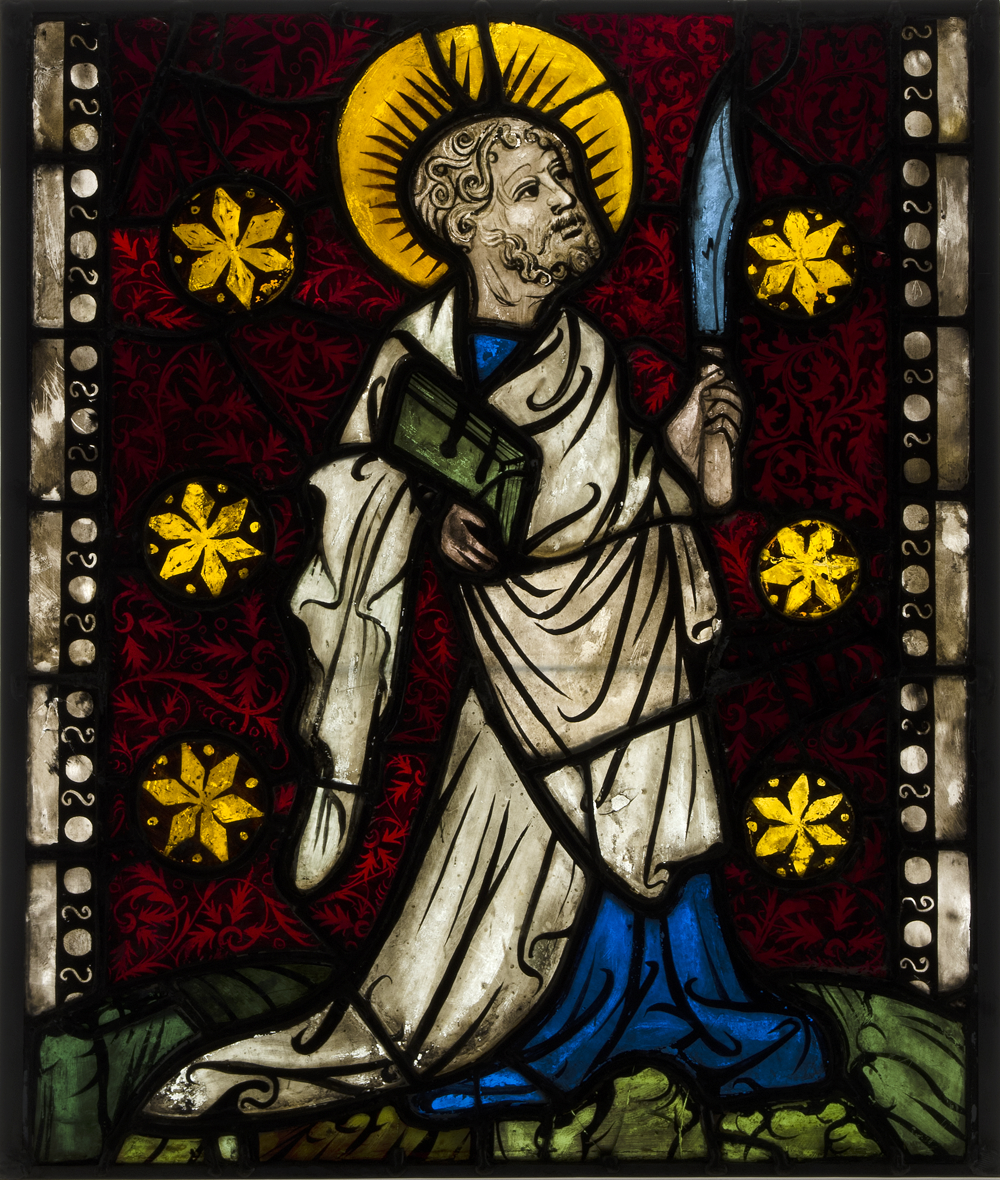 RELIGION AND DOUBLE STANDARDS
RELIGION AND DOUBLE STANDARDS
Mehmet Oğuzhan TULUN 20.04.2016 -
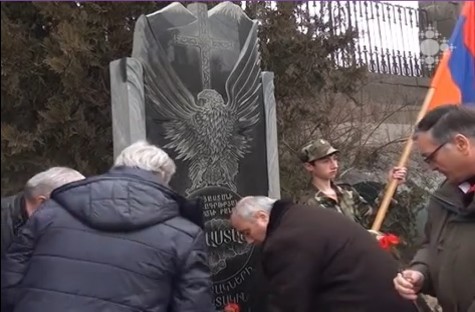 ARMENIA AND THE VENERATION OF TERRORISTS
ARMENIA AND THE VENERATION OF TERRORISTS
Mehmet Oğuzhan TULUN 19.05.2015 -
 PERSISTING IN THE MISTAKES OF THE PAST
PERSISTING IN THE MISTAKES OF THE PAST
Mehmet Oğuzhan TULUN 28.04.2016
-
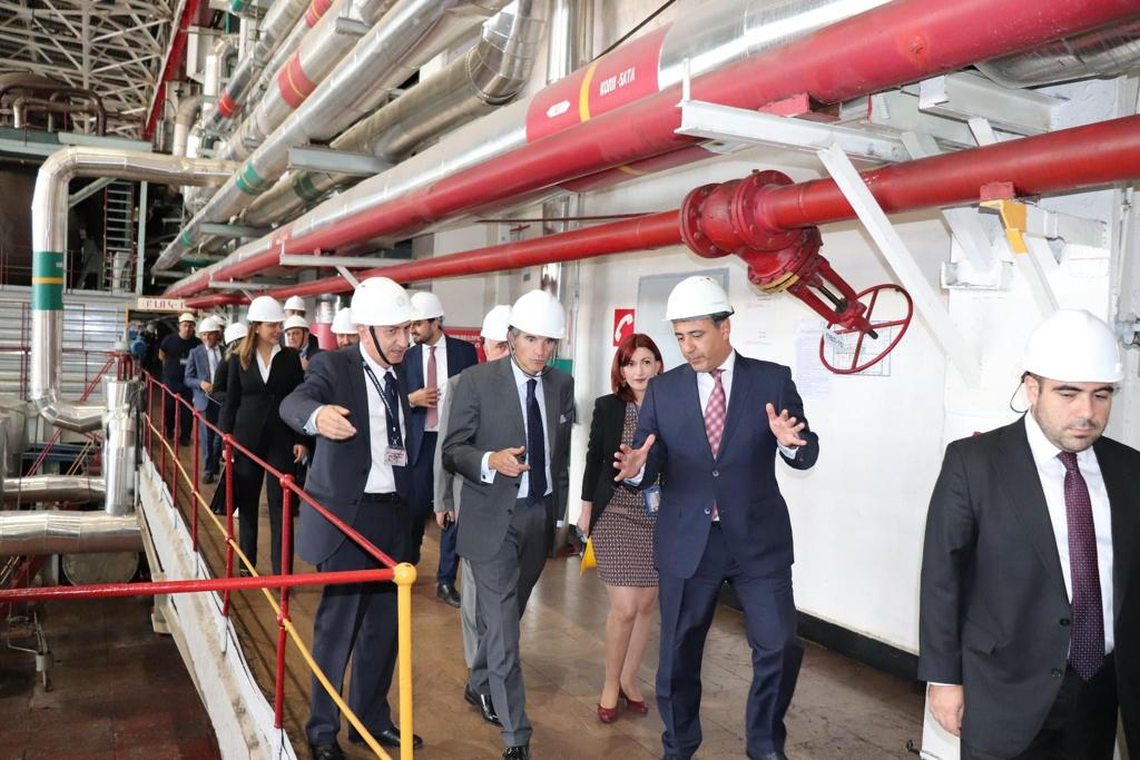 IS THE THREAT POSED BY THE METSAMOR NUCLEAR POWER PLANT BEING OVERLOOKED?
IS THE THREAT POSED BY THE METSAMOR NUCLEAR POWER PLANT BEING OVERLOOKED?
Tutku DİLAVER 10.11.2022 -
COOPERATION AGREEMENT BETWEEN THE CENTER FOR EURASIAN STUDIES AND THE INSTITUTE OF INTERNATIONAL RELATIONS OF NATIONAL CHENG-CHI UNIVERSITY (NCCU) OF TAIWAN
AVİM 21.10.2013 -
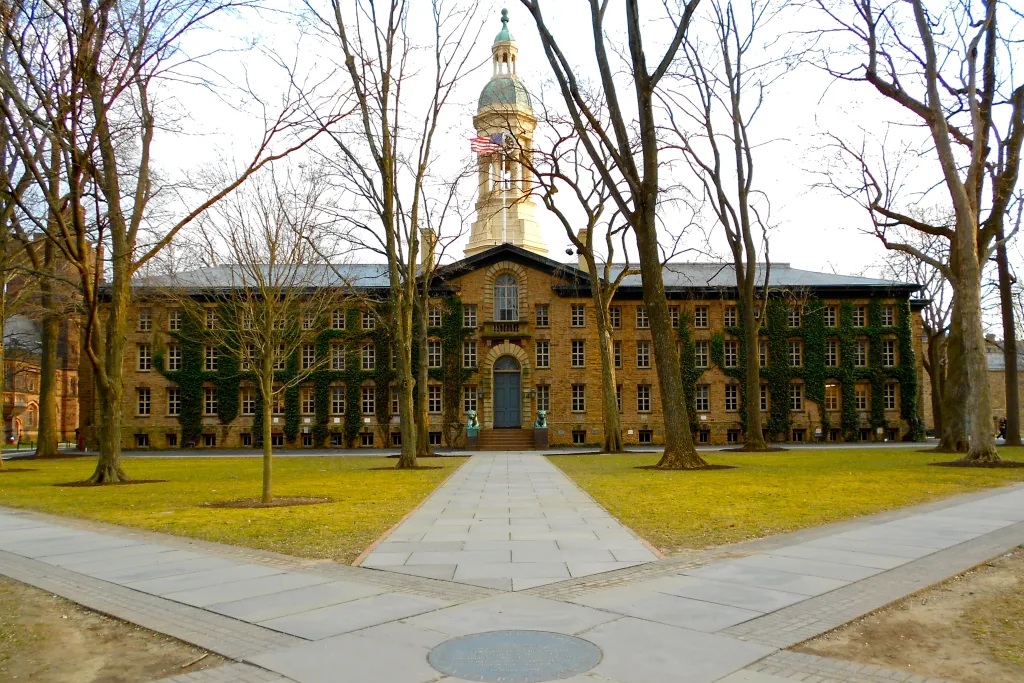 A DECEITFUL ATTEMPT TO TARNISH ATATÜRK’S LEGACY AT PRINCETON UNIVERSITY
A DECEITFUL ATTEMPT TO TARNISH ATATÜRK’S LEGACY AT PRINCETON UNIVERSITY
AVİM 09.10.2025 -
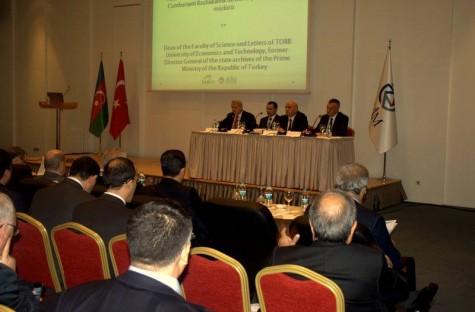 A MEETING WAS HELD IN ANKARA WITH THE COOPERATION OF AVIM AND AZERBAIJAN SAM
A MEETING WAS HELD IN ANKARA WITH THE COOPERATION OF AVIM AND AZERBAIJAN SAM
Hazel ÇAĞAN ELBİR 24.11.2014 -
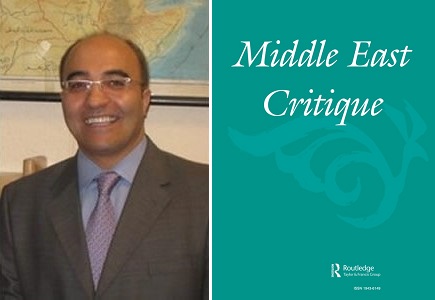 NEW SCHOLARLY ARTICLE ON THE TURKISH-ARMENIAN HISTORICAL CONTROVERSY
NEW SCHOLARLY ARTICLE ON THE TURKISH-ARMENIAN HISTORICAL CONTROVERSY
AVİM 17.06.2020
-
25.01.2016
THE ARMENIAN QUESTION - BASIC KNOWLEDGE AND DOCUMENTATION -
12.06.2024
THE TRUTH WILL OUT -
27.03.2023
RADİKAL ERMENİ UNSURLARCA GERÇEKLEŞTİRİLEN MEZALİMLER VE VANDALİZM -
17.03.2023
PATRIOTISM PERVERTED -
23.02.2023
MEN ARE LIKE THAT -
03.02.2023
BAKÜ-TİFLİS-CEYHAN BORU HATTININ YAŞANAN TARİHİ -
16.12.2022
INTERNATIONAL SCHOLARS ON THE EVENTS OF 1915 -
07.12.2022
FAKE PHOTOS AND THE ARMENIAN PROPAGANDA -
07.12.2022
ERMENİ PROPAGANDASI VE SAHTE RESİMLER -
01.01.2022
A Letter From Japan - Strategically Mum: The Silence of the Armenians -
01.01.2022
Japonya'dan Bir Mektup - Stratejik Suskunluk: Ermenilerin Sessizliği -
03.06.2020
Anastas Mikoyan: Confessions of an Armenian Bolshevik -
08.04.2020
Sovyet Sonrası Ukrayna’da Devlet, Toplum ve Siyaset - Değişen Dinamikler, Dönüşen Kimlikler -
12.06.2018
Ermeni Sorunuyla İlgili İngiliz Belgeleri (1912-1923) - British Documents on Armenian Question (1912-1923) -
02.12.2016
Turkish-Russian Academics: A Historical Study on the Caucasus -
01.07.2016
Gürcistan'daki Müslüman Topluluklar: Azınlık Hakları, Kimlik, Siyaset -
10.03.2016
Armenian Diaspora: Diaspora, State and the Imagination of the Republic of Armenia -
24.01.2016
ERMENİ SORUNU - TEMEL BİLGİ VE BELGELER (2. BASKI)
-
AVİM Conference Hall 24.01.2023
CONFERENCE TITLED “HUNGARY’S PERSPECTIVES ON THE TURKIC WORLD"









